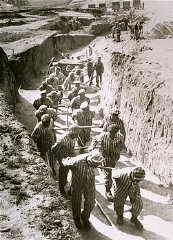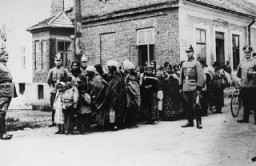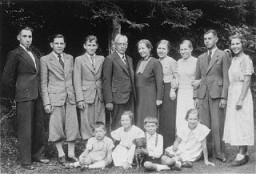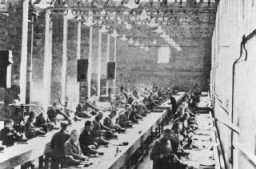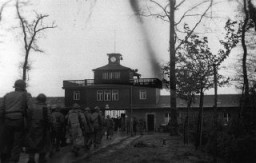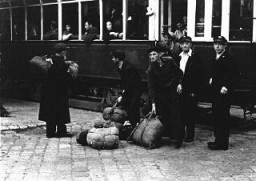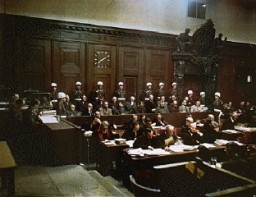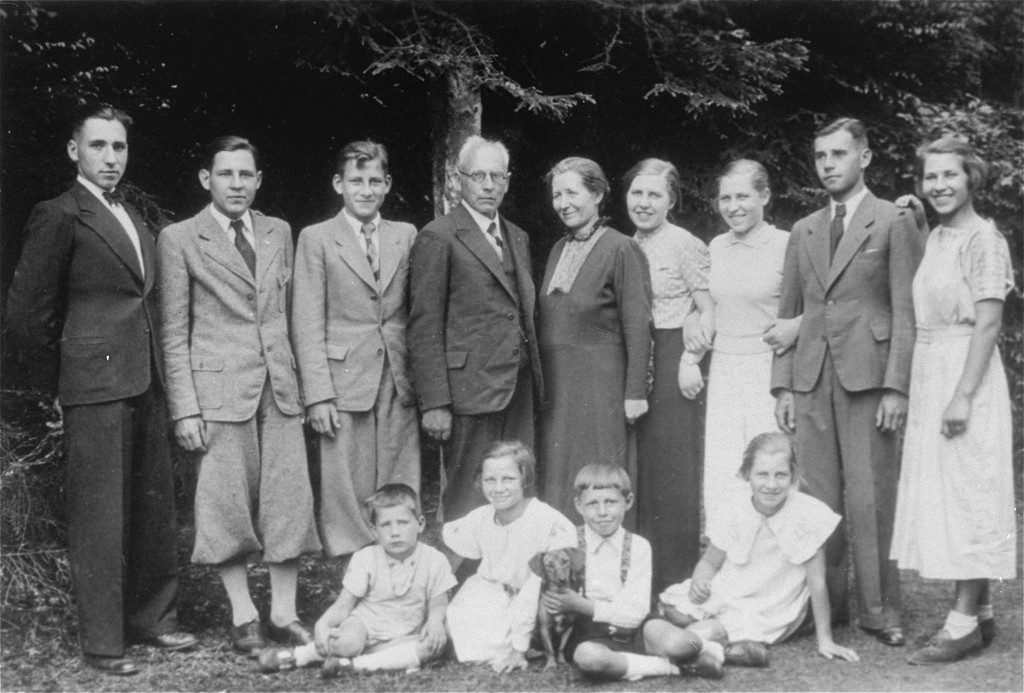
"Enemies of the State"
The Nazis aimed to reshape German society according to ideas about race and the nation. They labeled some racial and social groups as "outsiders" or "enemies." Many members of these groups were targeted for persecution.
Enemies of the State Although Jews were the main target of Nazi hatred, they were not the only group persecuted. Other individuals and groups were considered "undesirable" and "enemies of the state." Once the voices of political opponents were silenced, the Nazis stepped up their terror against other "outsiders."
Like Jews, Roma (Gypsies) were targeted by the Nazis as "non-Aryans" and racial "inferiors." Roma had been in Germany since the 1400s and had faced prejudice there for centuries. They had also been victims of official discrimination long before 1933. Under the Nazis, Romani (Gypsy) families in major cities were rounded up, fingerprinted and photographed, and forced to live in special camps under police guard.
Jehovah's Witnesses, members of a small Christian group, were victimized not for reasons of race but because of their beliefs. Witnesses' beliefs prohibited them from entering the army or showing obedience to any government by saluting the flag or, in Nazi Germany, raising their arms in the "Heil Hitler" salute. Soon after Hitler took power, Witnesses were sent to concentration camps. Those who remained at large lost their jobs, unemployment and social welfare benefits, and all civil rights. The Witnesses, nevertheless, continued to meet, to preach, and to distribute religious pamphlets.
The Nazis persecuted gay men between 1933 and 1945. They closed gay bars and meeting places. They also dissolved gay associations and shuttered gay presses. The Nazi regime also arrested and tried tens of thousands of gay men. They arrested them for violating Paragraph 175. This was a statute of the German criminal code that banned sexual relations between men. During the Nazi era, between 5,000 and 15,000 men were imprisoned in concentration camps as “homosexual” (“homosexuell”) offenders. This group of prisoners was typically required to wear a pink triangle on their camp uniforms.
Key Dates
June 24, 1933
Jehovah's Witnesses banned in Prussia
The Nazi government of Prussia, the largest state government in Germany, bans Jehovah's Witnesses. Jehovah's Witnesses refuse to make the "Heil Hitler" greeting and, beginning in 1935, to serve in the German army. The Nazis begin mass arrests of Jehovah's Witnesses in 1936. Many Witnesses are imprisoned in concentration camps, and they are represented in nearly every major camp. Generally, Jehovah's Witnesses refuse to renounce their convictions, even though they could obtain release from the camps by signing a declaration renouncing their beliefs.
June 28, 1935
Revision of Paragraph 175
Paragraph 175 was a statute of the German criminal code since 1871. It criminalized sexual relations between men. On June 28, 1935, the Nazi state amends this statute. The revision expands the type of acts that can be punished by law. A wide range of intimate and sexual acts are now seen as criminal. This even includes a man touching another man. There are approximately 100,000 arrests for violations of Paragraph 175 between 1933–1945. Over half of these arrests result in convictions. In most cases, men accused of violating Paragraph 175 were sentenced to prison by ordinary courts.
August 18, 1944
Communist Party leader executed in Buchenwald
Ernst Thaelmann, leader of the German Communist party since 1925 and one-time candidate for the German presidency, is executed in the Buchenwald camp. He is killed by his SS guards during an air raid on a nearby factory. Thaelmann had been arrested after the fire that destroyed the Reichstag (German parliament) building in 1933. He spent more almost 12 years in the camps. Communists, Social Democrats, and trade unionists were among the first groups persecuted by the Nazis.
